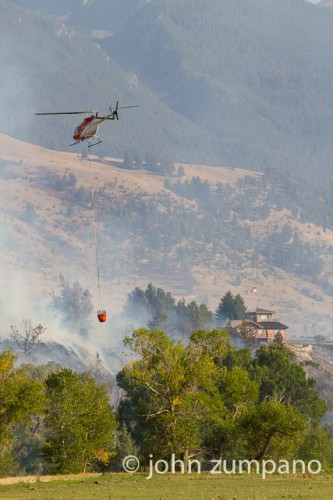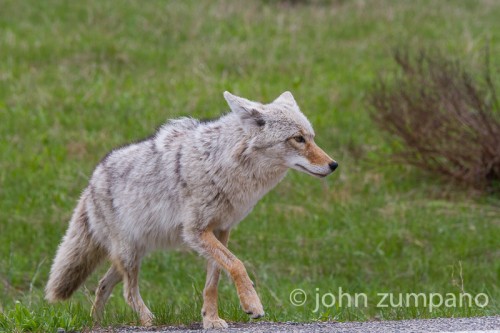Montana was very new, at least white-settled Montana was, and almost all the people who had come early on had come after the railroad came in. And that was in the 1880’s, and in the late fifties some of those folks were still around, not many, and others who seemed ancient to a ten-or twelve-year-old boy were very much around, and had been since before the First World War. My father and many of his colleagues had been in the services during the Second World War, which had ended the year that I was born, but the First World War was as remote in time to me as the Civil War or, for that matter, Agincourt. (Time is new to a twelve-year-old and very hard to measure, and now I just wonder where all those damn decades went.)
Merrill Burlingame, the historian, had come to teach at Montana State in 1920, and then there was Doctor Caroline McGill, who had come in 1910, and she was a quite amazing woman. She was a physician with a large practice, a power in the state, the owner of a dude ranch, a horsewoman of great skill, and I wish to the heavens I had just fastened my teeth into her ankle and hung close. But to a boy, she was just a formidable old woman who dressed in an ancient style and for whom I had no measure. I do now. I met her in the Quonset hut on Eighth Avenue, which led up to the campus from Main Street. She, and Merrill Burlingame and some others including my mother had somehow gotten a small museum going. I spent a great deal of time there. It was not noble public service, I seem to remember a growing number of old buffalo rifles–many people had these dreadful relics in their attics or tack rooms–lever-action rifles with long octagonal barrels—and I suppose I was more or less wondering how I could swipe one. The possibility of one being given to me for good and faithful service was absurd. For openers, my parents did not like guns, at all, and some antique cannon like a .45-120 was not easy to conceal. The shells for the rifle were seven inches long and hard to find. Ah well, noble public service……
Merrill Burlingame addressed a luncheon attended by local businessmen and when he totted up the take after his plea for money he found some generous soul had given one quarter and that was the entire contribution. He was still sore about it forty years later. But the museum was well begun. Doc McGill was there often, and our family from time to time were guests at her dude ranch–real guests, since my father’s income from his professorship was not enough to cover what the place would have cost– and I began to piece together Doc McGill’s amazing story.
She had been born in Missouri, went to the University of Missouri, and was denied entry into their medical school, even though her grades were perfect she was, after all, a woman, and of course that would not do…..so she took a PhD in Physiology. Then she got a scholarship to study in Europe, and she went for a couple of years, sending back over a thousand postcards as her journal of her time there. She was accepted at the Medical School of the Johns Hopkins University, finished the four-year course in two, but was not allowed to march in the graduation parade, even though she was first in her class. She was a woman and a delicate male ego would have popped with each step of her dainty foot. She got on a train, and sent a postcard to the folks back home in Lebanon, Missouri. “I am going to Butte, Montana, aren’t I smart?” it said.
Butte, Montana was a huge mining camp, many of the miners were immigrants, and the real Labor Wars were dead ahead. Butte’s history, had I but one sentence to describe it, can be found in the number of the local miner’s union. WFM/UMWA Local # 1. She treated the miners and their families. Proud people, they paid her with heirlooms they had brought from the old country. China and clocks and the like. She kept them as a trust. She knew and supported artists. She seems to have known everybody in the state. A friend of mine from an old Montana family says that he knew she was the most powerful single person in eastern Montana and when he went to Missoula to go to college he found that she was the single most powerful person there, too.
She died in 1959, and the little museum is now The Museum of the Rockies.
And I remember her as being quite beautiful, with fine features and clear, shrewd blue eyes, and though she seemed to like people well enough, she was never fooled by them. I committed some heinous act at her ranch and was brought before her to apologize. She knew I was adopted. “So,”she said sweetly to my mother,”have you thought of taking him back for a refund?” And her eyes twinkled merrily…..


